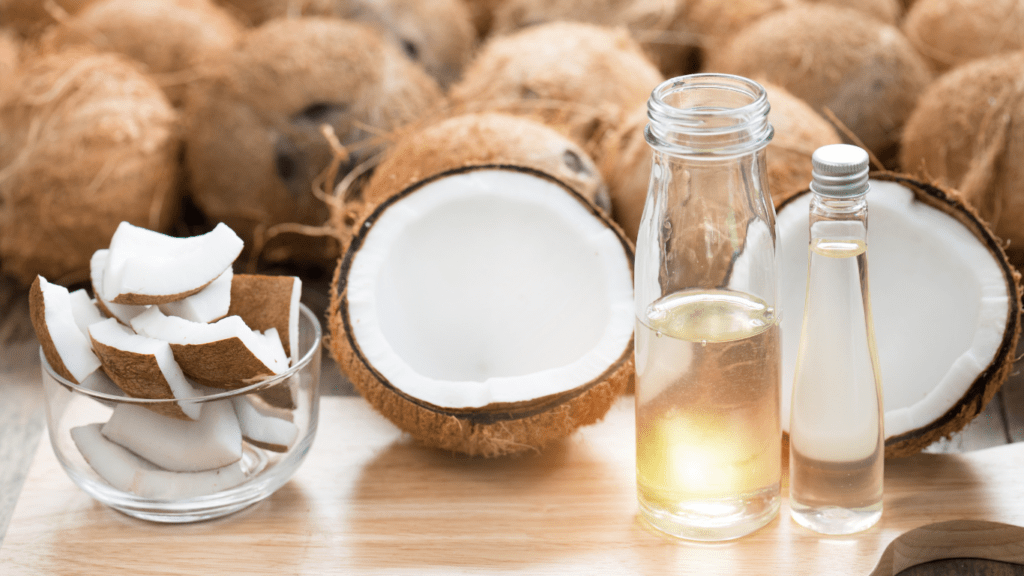Benefits of Using Natural Oils for Hair
Natural oils offer multiple benefits. They nourish the scalp, helping to combat dryness and flakiness. For example, coconut oil provides deep hydration and soothes irritation. Jojoba oil mimics the natural sebum of the scalp, balancing oil levels and preventing dandruff.
They strengthen hair strands. Oils like castor and almond penetrate the hair shaft, reducing breakage and split ends. Argan oil, rich in vitamins, improves elasticity and shine. Regular application results in healthier, more resilient hair.
They aid hair growth. Peppermint and rosemary oils stimulate blood circulation in the scalp, enhancing hair growth. By creating an optimal environment, these oils support stronger hair follicles.
They protect against damage. Natural oils form a protective barrier, shielding hair from environmental damage. For example, grapeseed oil offers heat protection up to 420°F (216°C).
Incorporating these oils into hair care routines delivers noticeable improvements. Benefits like:
- nourishment
- strength
- growth
- protection
make natural oils indispensable.
Popular Natural Oils and Their Properties

The diverse properties of natural oils can transform your hair care routine. Let’s explore the most popular ones and their unique benefits.
Coconut Oil
Coconut oil features medium-chain fatty acids, which penetrate the hair shaft better than many other oils. This oil reduces protein loss in both damaged and undamaged hair, making it a powerful conditioner, especially for dry and brittle hair. Regular use of coconut oil can result in shinier and more manageable hair.
Argan Oil
Argan oil, often called “liquid gold,” is rich in antioxidants, vitamin E, and essential fatty acids. Its high vitamin E content promotes a healthy scalp, reducing dandruff and dryness. Argan oil’s moisturizing properties combat frizz and boost shine, making it ideal for taming unruly hair and maintaining softness.
Jojoba Oil
Jojoba oil closely resembles the natural sebum produced by the scalp, making it highly effective for balancing oil production. It unclogs hair follicles and promotes hair growth. This light, non-greasy oil moisturizes hair without leaving an oily residue, perfect for those with an oily scalp or fine hair.
Olive Oil
Olive oil has a high concentration of monounsaturated fats and vitamin E. This makes it an excellent moisturizer for dry and damaged hair. Olive oil strengthens hair by penetrating the hair shaft, preserving moisture, and preventing split ends. It also adds a natural shine and can be used as a deep-conditioning treatment.
Castor Oil
Castor oil contains ricinoleic acid and omega-6 fatty acids, which increase blood circulation to the scalp and improve hair growth. It’s effective in treating scalp conditions like dandruff due to its antimicrobial properties. Castor oil also adds volume and thickness to thin hair, thanks to its high viscosity.
By integrating these oils into your hair care routine, you can achieve noticeable improvements and enjoy healthier, more resilient hair.
How to Choose the Right Oil for Your Hair Type
Selecting the right oil tailored to your hair type maximizes benefits. Each hair type requires a different approach for optimal results.
Oily Hair
For oily hair, choose lightweight oils that help balance sebum production. Jojoba oil mimics natural oils, preventing overproduction and maintaining scalp health. Peppermint oil offers a refreshing sensation and helps control excess oil while stimulating hair follicles.
Dry Hair
Dry hair benefits from rich, nourishing oils. Coconut oil deeply penetrates the hair shaft, providing intense hydration and reducing protein loss. Olive oil adds moisture and shine, making hair more manageable and resistant to damage. Castor oil is another excellent choice, promoting thickness and reducing breakage.
Curly Hair
Curly hair needs oils that enhance definition and reduce frizz. Argan oil is perfect for combating frizziness due to its antioxidant properties. Sweet almond oil seals moisture in the hair cuticles, maintaining curl integrity and enhancing shine. Grapeseed oil is light yet effective, offering moisture without weighing curls down.
Color-Treated Hair
- Color-treated hair requires extra care to maintain vibrancy.
- Argan oil helps protect against UV damage and repairs hair from chemical treatments.
- Coconut oil reduces protein loss that often accompanies coloring processes.
- Lastly, rosehip oil contains essential fatty acids that restore and maintain color-treated hair’s health and shine.
Application Tips for Maximum Benefit
Applying natural oils correctly maximizes their benefits for your hair. Whether used as pre-shampoo treatments, leave-in conditioners, or deep conditioning masks, the method of application significantly impacts results.
Pre-Shampoo Treatment
Use coconut or olive oil for pre-shampoo treatments. Apply the oil generously to dry hair, focusing on the ends. Let the oil sit for 15-30 minutes, then rinse with shampoo. This helps protect hair from harsh shampoo effects.
Leave-In Conditioner
Opt for lightweight oils like jojoba or argan for leave-in conditioning. After washing, apply a few drops to damp hair, concentrating on the mid-lengths and ends. This adds shine and controls frizz without weighing hair down.
Scalp Massage
Choose peppermint or rosemary oil for scalp massages. Mix a few drops with a carrier oil, such as jojoba or coconut. Massage into the scalp for 5-10 minutes. This stimulates scalp circulation, promoting hair growth and health.
Deep Conditioning Mask
For deep conditioning, use rich oils like avocado or castor. Blend the chosen oil with a hydrating ingredient like honey or yogurt. Apply the mixture to hair, cover with a shower cap, and leave for 30-60 minutes. Rinse thoroughly. This treatment deeply nourishes, leaving hair soft and strong.



 Men’s Hair Care Specialist & Author
Araceline is a unique and valuable contributor, bringing her expert knowledge of men’s hair care and grooming trends. As an experienced author, she shares her deep understanding of hair painting, coloring techniques, and the specific needs of men’s hair. Araceline’s articles are both informative and engaging, offering men practical advice on maintaining stylish, healthy hair.
Men’s Hair Care Specialist & Author
Araceline is a unique and valuable contributor, bringing her expert knowledge of men’s hair care and grooming trends. As an experienced author, she shares her deep understanding of hair painting, coloring techniques, and the specific needs of men’s hair. Araceline’s articles are both informative and engaging, offering men practical advice on maintaining stylish, healthy hair.
